Small business owners see new opportunities with NIL era in college athletics
by September 1, 2021 10:07 am 5,220 views
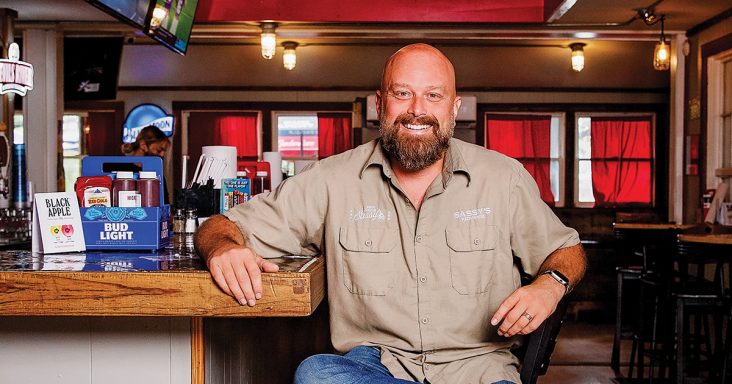
Allen Brumett, who owns Fayetteville restaurants Sassy's Red House, has secured name, image and likeness (NIL) deals with University of Arkansas football players Treylon Burks and Myron Cunningham.
The decision in early July by the NCAA to allow athletes to profit off their name, image and likeness (NIL) was a startling change, one of the most monumental in the history of collegiate athletics.
The change led to a scramble of local businesses securing endorsements with athletes. At the University of Arkansas, around 100 Razorback athletes have entered into NIL agreements representing 16 of 19 sports and approximately 160 deals. The businesses endorsing athletes span the full breadth of commerce, from restaurants to nutrition shops, car dealerships, moped companies, insurance agencies and law firms.
The “flurry of activity” has begun to slow, and there’s still plenty of uncertainty around what the endorsement landscape will look like ultimately. And while there are plenty of concerns as well, there’s consensus about one thing: the endorsements mark a massive new marketing opportunity for local businesses — even if the ultimate return on investment has yet to be determined.
“WE’VE GOT TO BE FIRST’
In June 2021, the Supreme Court ruled unanimously in National Collegiate Athletic Association v. Alston that restricting “non-cash education-related benefits” for college athletes violated antitrust law. The decision and the growing number of states passing laws allowing student-athlete compensation led the NCAA to immediately announce its July decision, allowing student-athletes to profit off their NIL.
Before the NCAA’s announcement, Conway attorney Travis Berry was considering capitalizing on Arkansas’ NIL laws, set to take effect on Jan. 1, 2022. Berry and Chris Turnage, an attorney and sports agent, formed Berry & Turnage law firm in Conway and were looking for creative ways to announce the new partnership.
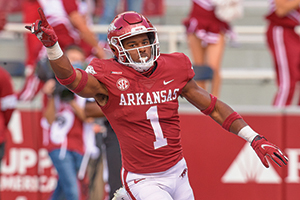
And they had to be quick.
“We had to be the first law firm to do this, especially if it’s personal injury,” Berry said. “We’ve got to be the first ones to do this. That was 100% our thinking.”
Once the NCAA changed its rules, Berry zeroed in on Razorback safety Jalen Catalon — he was “absolutely the one to get,” Berry said — and reached out to him on social media. Once negotiations were complete and the contract signed, Berry & Turnage coordinated with a film crew in Fayetteville and shot a series of videos with Catalon, a preseason All-American. Catalon and the law firm shared them on their social media accounts.
“This is one of the main focal points of our marketing efforts because you can use it while it’s fresh and can use it for several different kinds of ventures,” Berry said. “We’ll have him post several times throughout the football season. And if he goes to the NFL Draft, that gets even more national recognition.”
In Fayetteville, Allen Brumett, Sassy’s Red House restaurant owner, also quickly secured sponsorships with UA receiver Treylon Burks and offensive lineman Myron Cunningham.
“Let’s get in on it now, and let’s have fun with it until it gets too much for us,” Brumett said of his approach to the endorsements, which complements Sassy’s other marketing activities.
The goal “is more of an overall promotion, similar to hosting Eric Musselman [coaches show] at the restaurant,” Brumett said. “As long as we’ve been around, a lot of people still haven’t been to Sassy’s or haven’t heard of us. So we’re looking at any opportunity to get the name out — and being a Razorback fan, being involved with them is fun for me.”
Fayetteville scooter dealership MopedU, who endorsed Razorback soccer player Brooke Roberts, has taken a different approach to NIL, following the micro-influencer trend. Rather than focus on social media posts or traditional advertising, they asked Roberts to “incorporate our product into her lifestyle.”
“The micro-influencing trend is to find items that the user likes and enjoys using and to tell people about them,” said MopedU owner Ryan Malone. “It’s more focusing on image for us. Not only are we a niche market, but we also need people within 10 miles of us who don’t want to walk up hills. Brooke’s image and what she stands for, we liked that. We felt she would be approachable, and that’s what attracted us to her specifically.
“We are completely in the dark on this, so we’re having fun with it and testing the waters.”
‘OPEN FOR BUSINESS’
According to University of Arkansas marketing professor Dinesh Gauri, the idea behind endorsements is reasonably straightforward. By associating their business with someone popular and held in high esteem among their target audience, the company increases the likelihood of those consumers buying their products.
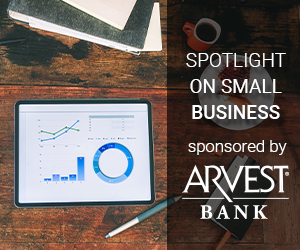
Gauri added that businesses should be deliberate in which athletes they target for such endorsements. The athlete’s reputation needs to align with the business’s target audience and their brand, any past transgressions athletes may have had, and the sport in which the athlete competes.
Brumett considered all these factors, in addition to social media followings and performance in their respective sport. His vetting process included browsing athletes’ social media accounts to ensure there were no controversial posts.
“This person’s going to be representing my brand,” Brumett said. “We’re all watching a lot closer now than we were before. I want this guy to put out stuff about Sassy’s, but also want to make sure he’s not putting out stuff I don’t want to be a part of.”
For Berry & Turnage, Catalon checked plenty of boxes. He was well-known, personable and enthusiastic, a communications major who reinforced the “hard-hitting” approach the law firm seeks.
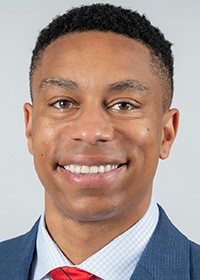
Just as endorsements by college athletes can help reach a large swath of consumers, the endorsement opportunities available offer “something for everyone” for businesses, according to Terry Prentice, senior associate athletics director at the UA.
“Our student-athletes are open for business, as I like to call it,” Prentice said. “Whether you’re a small, family-owned business that doesn’t have a budget that stretches very far, to a Fortune 500 company and everything in between, there’s something for everyone.”
While the specifics on the endorsement deals aren’t public, Prentice said he’s seen athletes receiving free merchandise and gift cards for food. He also said businesses are offering “real compensation” for student-athlete endorsements.
“We’re seeing real compensation coming through,” Prentice said. “And we have to make sure student-athletes understand and are educated on their responsibilities from a financial and tax standpoint. Receiving compensation like this comes with real-life implications.”
THE FUTURE
Many are hesitant to predict how endorsements will ultimately shake out. But many businesses plan to continue them in the future.
“Even if it doesn’t pay off from an ROI standpoint, like, ‘Oh, we can trace X amounts of cases to this ad,’” Berry said. “If anything, it’s led to more exposure, and publicity is never bad. We love that aspect of it. We love the Razorbacks. We like that we could deal with one of our favorite football players and incorporate our business into that. I think that’s neat.”
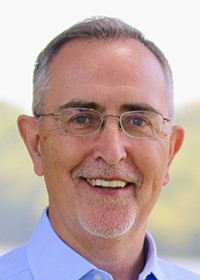
Malone said he is “very open” to more endorsements, and Brumett said he plans to sponsor athletes throughout the year, though he wonders what costs will look like moving forward.
“I feel like it’s going to end up being a lot of hands getting in the cookie jar, and it ends up where someone like me can’t end up affording to do much,” Brumett said. “That’s what we’re all kind of learning — what is this worth? That’s where we’re at now. It’s been a learning curve for the athletes and us as well.”
Plenty of other questions linger. Will endorsements affect locker room chemistry? Will the money affect student-athletes’ performances in their sports?
“They’re only popular because of the sport, and they’re doing it because they want to be professional,” Gauri said. “So if they get too much into the money business and swayed by how much some players are getting compared to others, then I hope they do not compromise their sport.”
Prentice, however, sees endorsements as a strong incentive for student-athletes to work even harder in the classroom and their sport. He said the athletics department has continued to reinforce that endorsements are just one piece of a broader puzzle of being a student-athlete.
“Your academics certainly matter. Being ineligible isn’t great for your brand or your NIL opportunities,” he said. “And it seems like going out and performing well in your sport is the single biggest way to help you grow your profile and your brand.”
Prentice says it’s hard to say how the NIL landscape will ultimately look. While July saw a proliferation of endorsements coming through, Prentice said the pace has slowed down, and student-athletes are becoming more selective and deliberate about whom they choose to endorse.
But the future of NIL endorsements will begin to crystallize as this school year gets underway and the “whole student-athlete experience” starts again with the new dynamic.
“The next six months will tell us quite a bit,” Prentice said.
While acknowledging the uncertainties, Berry’s law firm also sees NIL as an opportunity that will only grow moving forward.
“Chris and I think this is going to be here to stay, and it’s going to change the way everything’s done,” Berry said. “There’s a lot of unknowns, but we think it’s something that is going to be big in the future.”
